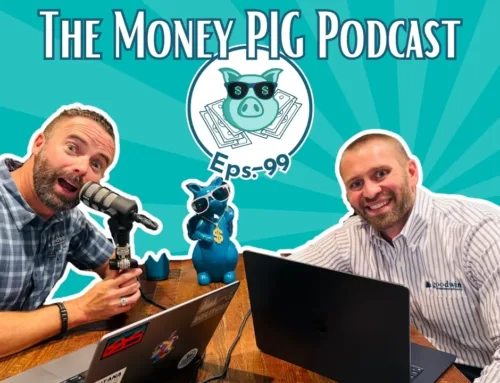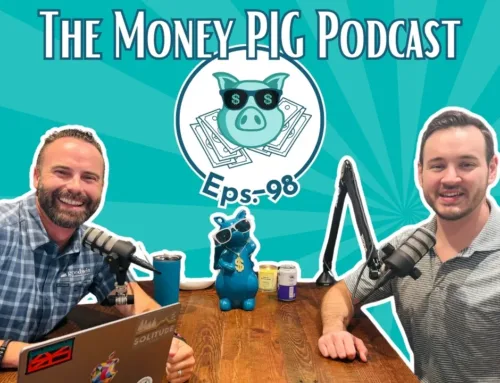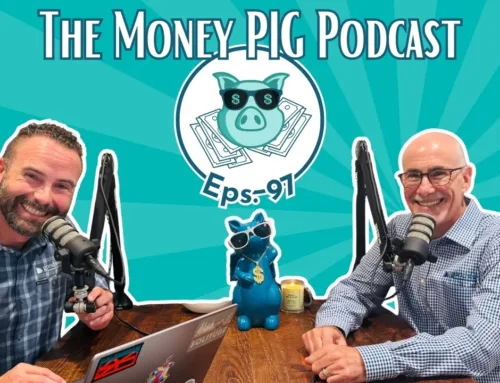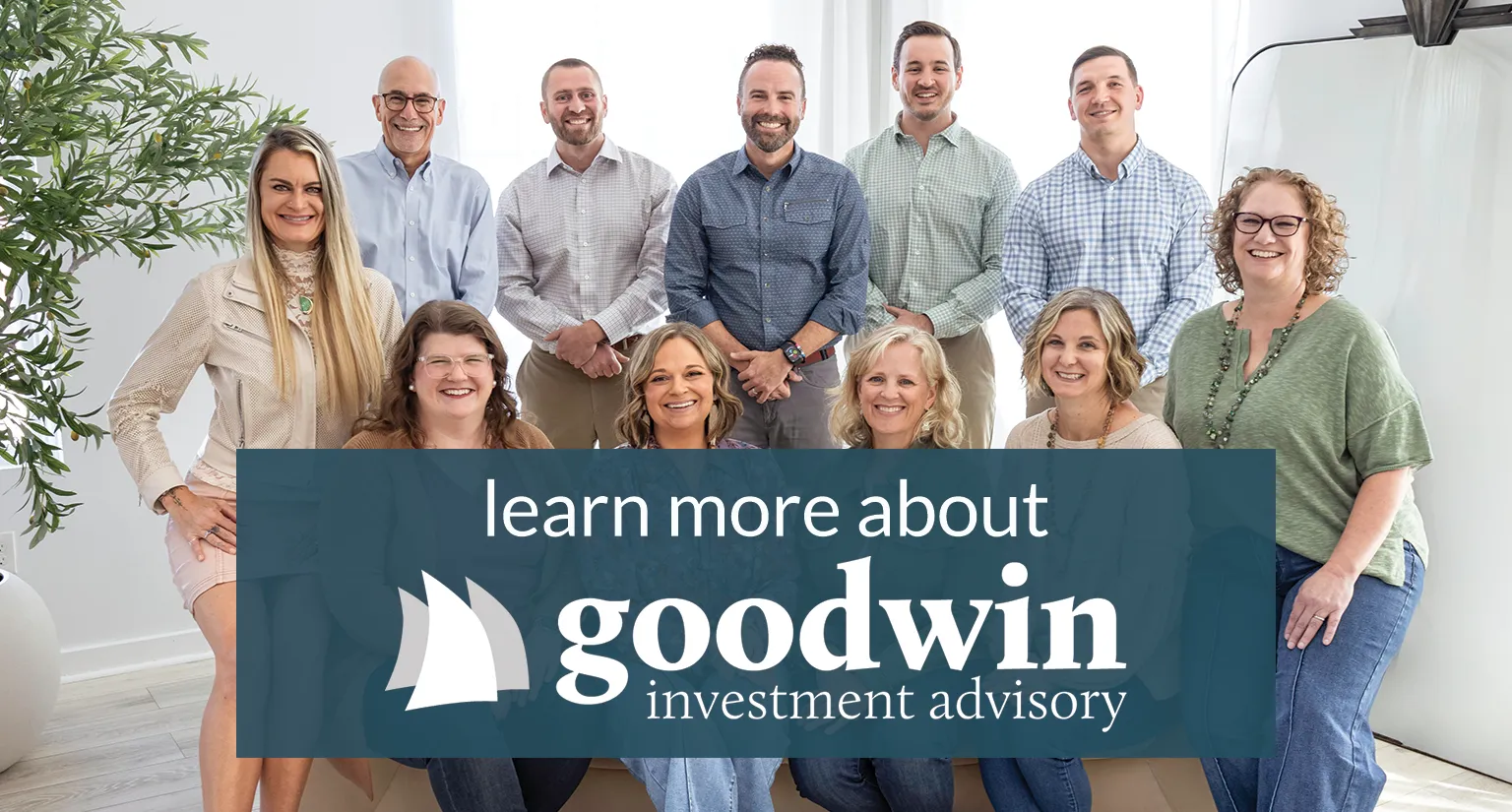
Link to Youtube –
https://youtu.be/QDaI9QcKsAM
Link to buzz sprout –
https://www.buzzsprout.com/2136084/episodes/17366264
Summary:
In this episode of The Money PIG Podcast, Tim Goodwin sits down with advisor Ray Brown (aka Pop Pop) to tackle one of the most important topics in financial planning—data protection. From cybersecurity protocols and password managers to phishing scams, cognitive decline, and the importance of estate planning, this conversation dives deep into how Goodwin Investment Advisory protects what matters most: you and your financial future.
We talk about:
- How we secure your information behind the scenes
- What we do to proactively protect clients experiencing cognitive decline
- Red flags for fraud and how to stay vigilant
- Tips you can implement today to better protect your own data
- Why sharing your estate documents with us makes a big difference
It’s not the flashiest topic—but it may be one of the most important.
Want to learn more?
Read our blog for a deeper dive into how we protect your data:
https://www.goodwininvestment.com/how-we-protect-our-clients-data/
Like, subscribe, and leave us a review if this resonated with you!
Enjoy the episode?
Subscribe, share it, and leave us a review on Apple or Spotify!
For personalized financial guidance, schedule an intro call with our team at Goodwin Investment Advisory in Canton, GA. Our CFP® professionals can provide advice and help you navigate how to invest your wealth and plan for your retirement. We’d love to help you live out your legacy! To learn more about the benefits and services we offer click here.
Goodwin Investment Advisory is a Registered Investment Advisory firm regulated by the Securities and Exchange Commission in accordance and compliance with securities laws and regulations. Goodwin Investment Advisory does not render or offer to render personalized investment or tax advice through the Money PIG podcast. The information provided is for informational purposes only and does not constitute financial, tax, investment or legal advice.
Transcript:
Welcome back to the Money Pig podcast. Today we have our special guest, Pop Pop, Ray Brown. boy, boy. So excited to have you brother. So as we get started today, I always love for you, our guests, to share something the audience may not know about you. What a great opener, huh? Do we need a drum roll? Drum roll please. We’re add the sound effect in. Sure, to the world. Folks don’t know, hot off the press.
got a baby. Hey, in. Let’s see. Early September. So congrats. Should be just right around the corner. So excited. cool. First one. First one. You and Lindsay. Lots to learn. man. All the glow. She she have like she’s super tired or like wants to eat, you know.
Pickles dipped in honey or something. I don’t know. She’s got some cravings, but energy’s good. She’s excited and made it through that first trimester. So it’s kind of smooth sailing. She hit like this nesting phase where she’s all like, so I think that’s like the baby room. Right? Yeah. Angela, I get to tell you. So like you got a baby room, right? Yeah. Yeah. Yeah. So like she’s just in there. She should get in the crib. She get in the wallpaper.
Yeah, organizing, you know what I mean? step at a time, we’re getting it ready. It like hits though. yeah, it’s game on. It’s like first we gotta clear some stuff out, like this is no longer our overflow If it gets closer though, like to the end of 40 weeks and like that room’s not ready, there will be some major anxiety that pops up. there’s like, there’s nothing more important than you doing this right now, Yeah, are ticking. Heads up. Yeah, yeah, yeah. Like this baby could come any minute, we don’t even have a place to put it.
So congrats, man. We’re so excited. duper pumped. Thanks for sharing that. Yeah, absolutely. All right. So today we are talking about how we protect our clients. Super exciting, super thrilling. That sounds like a great movie title that people would just totally bar down the door. So just kidding. But it’s super duper important. And I imagine all of you listeners are exhausted like all of us are on text messages of people trying to steal your information, emails, voicemails.
Tim Goodwin (03:19.606)
Gosh, it continues to get harder and harder. It really does. because AI deep fake stuff. They’re getting a lot better with technology. And so so we feel like this is a really, really important topic to cover, not only like how we help our clients on the security and protection side of things, but also like what we do internally. So but I kind of I think it’s interesting, like, I wouldn’t worry about, like your smartphone or your TV spying on you.
because your vacuum cleaner has been gathering dirt on you for years. Wow. Wow. That’s too much. You what I did there? We’re going to have to dump a bucket of cold water. Oh my goodness. Cool him down. vacuum has been collecting dirt on you for years, man. Oh my gosh. All right. I’m sorry. Let’s move on there. of protection. Okay. So other things too that we are talking about is not just protecting data and encrypting things.
But also we understand that our clients as you age, you know, go through cognitive decline, right? When you’re now more vulnerable to being taken advantage of, right? So the folks, the fraudsters that are out there definitely love to like laser focus on the older generations. They’re more vulnerable. They might be alone. They may not understand the technology and they appeal to threats and all those things. So like,
And like, you know, they’re, making decisions with assets that they’ve built their whole life that they’ve got access to. they, and they might feel compelled to make that decision. You know, without enough reasoning or someone that they trust or a financial advisor or a family member. So when it comes to this cognitive decline, why is that important to us as financial advisors? And what does that look like in terms of.
of our services and what we do about that. Absolutely. Yeah. Definitely not the most fun thing to think about or to talk about, but it’s one of those that’s like, okay, for certain this will happen. It’s like just you will die one day. That’s a fact, you know? And so it’s like, okay, it happens to the best of us over time at time is coming where you’re not going to in good spirits and good mind be able to handle certain things yourself. And so that cognitive decline, it’s yeah, not fun to think about, but it’s, it’s coming, you know? And so I think getting ahead of that and so what do we
Tim Goodwin (05:45.056)
What do we do to try to combat and prepare for cognitive decline with our clients? Yeah, a few different things come to mind. I know, of course, clients we’re working with, we’re managing assets, we have every single client designate a trusted contact person. Let’s unpack that. Yeah, I always tell people different from a beneficiary, not to be confused. This is not someone that’s going to receive your account if you pass away, but it’s more so…
someone that you authorize us or the firm that’s managing your money to reach out to, someone that they can call if we have reason to question your wellbeing, whether you’re just not answering the phone or not responding to emails, you’re off the grid for an extended period of time, or if there’s requests start coming in that just seem a little bit odd. I know this client well, that’s not something that they would ever ask or not an instruction that they would give.
We have reason to concern. Super important. Regardless of age now, we establish a trusted contact for everybody. They can’t make like financial decisions on the client’s account, but it’s not discussing any business of the account values, anything like that investment direction. Right. Just trusted family member, trusted friend that we can talk to you. you know, I have an example of this. I’ve got a client. I love this client dearly. I’ve known her for a really, really long time, but there have been times over the years where I’ve had conversations with her. I’m like,
just she seems off. Maybe it’s because she’s asking me the same question over and over again. And initially, I think I must just be really bad at explaining this. But after I’ve explained it multiple times, it’s not that she’s asking me to explain it differently. She’s just asking the same question. You know, or just thinks or maybe she’s not as sharp as she once was. you know, it’s something that that we really have to balance the tension of when we reach out to a trusted contact. But in those situations, I will
articulate in infinite detail in our contact relationship manager, hey, I had this conversation with this client, I was a little concerned about her cognitive level. You know, these are these are the reasons why because that can be really tough conversation with an individual. I know. So we use fidelity investments. They are independent, preferred custodians. So we don’t work for fidelity. They work for our clients. But if a client calls fidelity, you know, you’re always picking up that
Tim Goodwin (07:59.394)
you know, we’re recording this call for to improve the quality assurance purposes. Thanks to you. That’s exactly what I looking for. and really, if they have a conversation with one of our clients, and they suspect that there’s some cognitive decline, they will notify us and they will transcribe that voice call that will give us the text of where they felt like there was cognitive decline. And it’s super cool that they communicate with us. Fidelity as well can reach out to that trusted contact.
we can reach out to that trusted contact as well. So they do a great job at it. They can pinpoint like, you know, of course there’s some times where accidents happen. Hey, this guy’s a reset his password three times in the last week. Is everything okay? It’s like, he’s fine. He just can’t remember his This client called. We had something like this. This client’s calling at six in the morning, asking us to make these trades and these individual stocks and a managed account. Like it’s just completely out of
character, it’s not even the right time, they should be putting the trades through us, but we make the trades, we don’t do individual stocks, like when there’s just so many off things. Or when there’s that sense of urgency. And I think, as you said earlier, the fraudsters are getting really good at getting stuff going. It’s client calls and it’s an urgent AM, like I need this wire transfer to China. Can you get it going? It’s like that, hold up. That’s nothing you’ve ever mentioned before. That does not sound, that sounds something’s off. Yeah, I think,
what are some ways that the client themselves, like how can a client protect themselves from cognitive decline as well as being a victim of fraud or scamming? think two factor authentication. So there’s annoying text messages that you have to get to copy the code. It’s a big pain in the butt, but at the same time you appreciate that extra level of security. What that means is just anytime you’re trying to log into your bank or to your investment institution,
you’ve got to have a text message code sent to your phone. So not only do you need to know the password, but you also need to be able to capture that code to enter in on the thing. So it’s just that added layer of security of if someone wanted to hack your accounts, they would need to have your phone and your password. It just makes it a little harder for someone to get access or to pretend to be you. So yeah. And I would, I know this is so tough because there are so many usernames and passwords out there. That’s what, that’s what a credential is. It’s your username and password. There’s so many things you have to have.
Tim Goodwin (10:17.742)
It is so not good for you to have the same password. That’s true for almost anything, especially banks and access to your stocks and bonds. Those all need to be unique passwords and probably super random with numbers and letters. And to keep up with that, keeping a password keeper may be a much better solution. As a company, we use LastPass. And I use one password at home just for my family. So it’s nice to have work versus personal stuff, but it’s nice. They’re fantastic. They do a great job. And it’s just, yeah.
I don’t know any password to anything other than my one really complex password that gets me into that password manager. So everything’s encrypted. And again, it’s a little pain in the butt. You got to set that up and you got to, you know, got to use that technology. in the butt is better than the pain of the butt if somebody’s stealing a bunch of your money. Absolutely. Yeah. It happens. think another thing folks can do at home, it’s just having that conversation with trusted folks, family. It’s like, what is our plan? And I think we didn’t talk about this before. And, I think you’ve got a great plan in place, like with your family and like,
Love you folks, know, but here’s, you know, anything that comes up a financial decision that’s over a certain dollar threshold. Like we want that phone call because it happens. And I’ve had two conversations recently with clients of mine that have been victims of scams. They called it at the last minute, but truly were convinced something was going on. And this one lady called and we had to of course go through some steps to get her new accounts retitled, reissued new account numbers. It was on her way.
to the institution or to the place where the fraudsters were trying to get in. She was like truly convinced and then just had that like wake up call just as she’s driving like that is crazy but they’re so good and it’s like no fault to her. Praise God she did that. They didn’t get her. Yeah, that it reminds me a little bit of that like a rational exuberance with the stock market. It’s so volatile, it’s emotional. All of a sudden you make these decisions at the wrong time but if you can be rational and talk to somebody you trust, hello your financial advisor or certified financial planner, even when you talk
When you say out loud, need to do this because of X, Y, and Z. When X, and Z is super emotional, sometimes even when you just hear yourself, you’re like, that doesn’t make sense. And when you realize you to talk it through with somebody else, it’s almost like they don’t have to convince you. You just need to hear yourself say it. I think in this situation, that’s the same. Yeah. So with my parents, there is a threshold. And I’ve asked, I’m one of three sons. And I said, look, you can call any three of your sons. But if you’re going to make a one-time
Tim Goodwin (12:37.826)
you know, transaction over this amount. That’s not a normal, regular thing. You need to pick up the phone, call one of your three sons and just talk it through with them. Because we are, you know, so much younger, we’re a little more aware, probably a lot more aware of what the new techniques and technology and fraud is. So yeah, I think that’s an overall great thing to do at home. Let’s transition a little bit to what do we do here for security? You know, as far as
when we’re using our laptops and computers and working with data and that kind of stuff. We have a lot of data. We have a lot of data. Yeah, there’s a lot of things to consider. You got to be a step ahead. And so for us, of course, yeah, it’s internal. Everything’s secure in terms of computers that we use, the team, know, keeping the passwords safe, of course. We never discuss client account numbers, which I think is great. know, anytime that that’s not something you transmit via email because you send something to a client, the client may read the email, trash the note.
But if someone were to ever get access to that client’s email, dig into their trash folder, it’s like, here’s, you know, just because you delete it doesn’t necessarily mean it’s gone. so data lives on, or if they send us a message, here’s my tax return for last year. That message they sent to us lives in their sent folder of their email. And so it’s like, we’re very careful with attachments. I know all of our email signatures.
say at the bottom, like do not send secure information through this email. Do not call us and leave voicemails for you. We have a link that people would use that clients or potential clients are used to to upload important documents like that. Same with us. We will upload a document not as an attachment to the email. Right. Because we need those things. We need to get your tax return. We want to dig through that kind of stuff, get our hands on it, but do it in a secure way. And so kind of leading with that, you know, there’s integrity around data safeguarding.
and making sure folks do stuff like that through the portal. Having the trusted contact, again, that’s more so in the client realm, but yeah. We also like, for example, we don’t do sticky notes around here. Sticky notes cannot have any password on them. No username. We have a reminder on a regular reminder for every team member to shred any documents that are maybe living around your desk or your office. It’s all got to be scanned in securely to our portal.
Tim Goodwin (14:49.694)
we change our wifi password on a regular basis here. And when it comes to wifi, any client, any client, sorry, any, any team member here that is in a public wifi, let’s say you’re traveling or you’re at Starbucks connecting to work. they have to use our, our secure VPN. do annual fishing training here. Fishing is another big one. It’s not the kind of fishing is the pH fishing, but it happens. again, speaking of fraudsters, they are getting better and better because they’re learning. know what.
folks know and they’re trying to take it a step further. But were you the one? Yeah. Share that. I was thinking that just popped into my head, but it’s like, I received a message from, I should remember who was it. So it was from a vendor. It was from a company apparently. And below in this email thread is conversations from you to this company, asking them to send something to me. And I’m looking, trying to like, what, what am I to do with this email that’s been forwarded to me by this random vendor?
That shows in the thread. Tim is specifically back in October of last year telling this team like, sure you send this to Ray, he’ll be the one to handle it. like, that doesn’t look like something Tim would just the way the email was written. could tell like it was Tim would type a little more than the level of fishing to get to know our company to know I’m the CEO.
you know, somehow find me and then to try to get me to click on a PDF and to like, open it up and totally build a fake message in the thread that I had communicated with them and I told them to yeah, yeah, yeah. So you’ve got to be super duper careful about that. It was just great. Cause Ray just walked over and was like, I hope this doesn’t look right. Was this you? And I was like, no, wow. They’re good. They’re doing really good. Yeah. There’s some elaborate ones to get through. Yeah. And then even like when, you know, folks are reporting emails as phishing or spam.
I’m an admin with our Google workspace. So as Joanna, you know, we, get flagged to know that, you know, that’s happening a lot. We’re giving that feedback back to Google to try to let less emails come through. Another one, another great policy we have internally. And again, it’s one of those that’s like, it’s a little bit of a pain, but it’s for your protection, for your safety is bank accounts and wire transfers. Right. We don’t receive though. You can’t just call up and say, okay, I’m going to give you my account number. This is where I need the wire transfer to be sent. Or I’m at the car lot. I need you to send this wire right now. It’s 50 grand from my managed investment account.
Tim Goodwin (17:02.21)
we could absolutely execute that, but we just choose not to. It’s like, you’ve got to talk to us a little bit before the big day. You’ve got to go in and add the car dealerships wire information to your account. There’s some extra security steps along the way for your own safety. Right. Right. that’s just, to protect our clients and to, and to protect us as well. When the client does it, there’s more credentialing and
multi-factor authentication for them to log into Fidelity and add that bank account. can execute it later, but we don’t add new bank accounts to clients managed accounts. actually direct the client to do that themselves because there’s more security and more efficiency. It seems to be a lot quicker when the client does it than if we take the risk and with the deep fake of folks.
could make a video of our client could certainly mimic even their voice. Somehow break into their email and get to know the relationship a little bit. So they could say, I know it’s that client because they mentioned this and I just talked to that client about it. Well, that was in an email and they broke into their email and they learned that and then they got their voice off of videos on YouTube or whatever and just made it up. could type an email to you. You get that email. You could absolutely then take it forward it to someone else with my original message down at the bottom and you could change the
the name of who it’s from. It’s like anybody, it’s not from Ray Brown anymore. You can say that’s from Angela. You can modify the text you can for. So it’s like sometimes when there’s chains, complicated email threads, it’s what you’re reading is not necessarily just because it says that’s from Tim or that’s someone else could have written that. It could be an absolute fake conversations. yeah, I was just thinking of one other one, but I lost it. It’ll come back to me in a second. Yeah. So, yeah. So just know that like, not only were you doing a lot of things here, to protect our data, to protect our clients,
We’re also, as we learn things, we’ve been sharing that with clients. So we’ve got information about how to protect your data, information about how we protect our data, information about maybe protecting yourself through cognitive decline. Maybe you’re worried about your parents in cognitive decline. So it’s really interesting. don’t think I’d ever, when I started this firm, you know, over 20 years ago, thought that we were going to try to be a thought leader.
Tim Goodwin (19:13.73)
on how to secure your data and not be taken advantage by fraudsters. But times have changed. you know, that’s what they’re after is your your assets and your money. And when we’re entrusted with so many clients to manage the if not all a significant portion of their wealth, what we want to do our best to protect it. So just know that we I don’t want to say that we’re always at the cutting edge of it or that we’re always five steps ahead, but we are staying very vigilant on all the things that we can do to protect the data.
for the firm, for our clients. And then if we feel like that’s something the clients can do, we’re gonna share that with them. Any other thoughts on? I’ve got three quick ones. I thought of what I wanted to share. If you made it this far, three quick takeaways. think, you know, thinking through, I was listening to a podcast the other day talking about like cognitive decline. was in terms of our last president. And it’s like, part of it is like when you’re around a person all day, you don’t pick up on things as often as you do. And I know a lot of, probably a lot of our clients have experienced that with their own family. It’s if you’re the caretaker for an elder.
You’re with them every day. don’t know. Same way, like when you’re putting on a few pounds, it’s like, you see the person every day. You don’t necessarily notice that they’re losing weight or gaining, you know, but then it’s like, man, I haven’t seen them in three months. They’ve really, they’ve changed hopefully for the better. But, I think that’s just kind of that, that’s silent. It’s that unspoken, whatever you want to call it, the unspoken risk that’s there. And so sometimes having that advisor, just another value add. It’s like a third party perspective, someone that necessarily doesn’t communicate with your, your loved one every single day. But if you’re
you know, we’re having those meetings, we’re able to pick up on those changes because again, we don’t spend every waking moment with the person. So I thought of that, it’s just a little value thing there. Another one is for what can clients actually do? Another tip for, I love doing this in my house, it’s no, comes via regular postal service mail. Don’t allow that to be stolen out of your mailbox, your account statements that could have account numbers and just valuable information, e-delivery.
Do your e-delivery, keep your email secure, receive the documents that you need electronically. I know for older folks, that’s a little, that’s a tough, that’s a big ask. It’s like, I don’t want to log in to go look at tax statements, but it’s like, it’s important to have it encrypted and secure a way for you to log in and see those items. So yeah, I think that’s pretty important. Yeah. A lot of it is just like, if you got something you weren’t expecting, that’s when it’s us. I wasn’t expecting this email. I wasn’t expecting this text. I wasn’t expecting this phone call. We had a team member here.
Tim Goodwin (21:36.322)
who clicked on what looked like a docu-sign link from somebody. We get those all the time. The email came from somebody that her and I know. It was her exact email address, but somebody had hacked in there and sent us a docu-link. And I thought, well, I wasn’t expecting a docu-link, so I’m not clicking on it. Right? So I think that’s another takeaway. If you weren’t expecting it, then you need to initially be sus.
Thought of one more. I continue to say things. Go ahead. Go ahead. We to keep this going. We haven’t talked about. the audience just loves that we’re still running out of time. Security protection. Reminiscing estate documents. We I spend cash. I feel like so much of my time in a given week is just encouraging, motivating and holding folks accountable to sharing those estate documents with us. We want to have a copy on file. We don’t do anything with it. It’s not like we’re we’re not selling your will to just someone out on the Internet. It’s just.
We hold it, we like to place that on file just so that we can understand your estate plans and also the beneficiary arrangements, all that kind of stuff that’s important. We want to make sure your wishes are protected. And if we were to ever get a phone call from someone, having it on file allows us to check and see like, are you the trustee? who’s this person? Like, you really the successor? Are you really the executor? So much of what we manage for clients is referenced in those estate documents. And so it makes sense for.
for clients to share that with us. So we actually give clients an incentive to share those just to, again, not a fun thing to go knock out and do. So many people do not have estate documents in place. And so we’re constantly encouraging, motivating, having that done. And part of that estate package is the durable power of attorney. If something were to happen to your mental state or God forbid you’re in a car accident and you’re in a hospital for a month or so, it’s like, we need to have someone designated that can jump in and tend to financial business while you’re just out of it for a little bit. So it’s like,
That’s a great point to tie into this really it is because you know, we’re talking about cognitive decline or phishing but like what if you’re really in if you’re injured, what if you’re not conscious or you know, whatever like you the way that you can protect your data and what you’ve worked hard for is to already have worked this and establish these these documents in advance. little bit proactive instead of reactive. It’s like once it’s happened, it’s too late. And it’s like anyone can be subject to just anything you could slip and fall and you’re you’re done or you’ve got a mental thing going on. It’s like
Tim Goodwin (23:54.702)
having those trusted plans in place. So we’re happy to help talk through that with clients. So just make sure the plan makes sense. Make sure we thought of all the nuance. Well, Ray, I know that this episode will probably be the most highest rated, you know, most downloaded episode of all times. Cause you know, this is such an exciting conversation, but it’s like one of those super duper important things. So I’m glad that you joined us today that we talked about that. Want to remind the audience that you can actually, if you want more information on this, we do have, you know, how we protect our clients’ data as a blog.
on our website. There’s actually a couple articles there now because we talked some about more about cognitive decline and other things. So you can go to our knowledge center on GoodwinInvestment.com or you can go to the show notes for this episode and download that. I did want to give a special shout out as well to Tara who writes a lot of our contact, contact, content is what I’m for. Angela, our producer who’s sitting across the table from us helping us sound and look good. So super grateful for both of them.
And if you are ready to learn more information or talk to us more about our services, you can schedule an intro call on Goodwininvestment.com. So Ray, as we sign off, I would love for you to share something that you’re grateful for. So while you’re thinking about that, I’ll share what I’m grateful for. And I’m grateful for the Aloha Dads app challenge. Okay. Yeah. So I am super excited. My parents have had their 50th wedding anniversary. I mentioned earlier that I am the oldest of three.
sons. And so our families with my parents were all going on this trip to Hawaii. That must have been like super excited about it. But I challenged my dad and my two brothers to an abs challenge had my chat GBT Jarvis, and what I call Jarvis make us an Aloha abs dad challenge. And so we have scoring, we have a loser for the week, there’s going to be embarrassments and things where maybe like for the whole day, you can’t do muscles in a picture or maybe you can’t rub in.
the sunscreen entire like everyone’s gonna be wanting to because like yeah, because there’s the you know, if you’re the loser for the week, it’s not just about having the best app when you’re there on the way. Like if you’re the loser for the week, there’s going to be certain things you have to do. If people ask your name, you’re gonna have to say that your name is fluffy for a day. That’s one of the things you might have to wear socks with sandals. You know, you might have to have like this random spot of sunscreen on your face that you can’t rub in for whole day and everybody’s gonna be like, you need to rub that in. You’re like, no, no, that’s
Tim Goodwin (26:15.682)
That’s intentional. lost the challenge. So anyway, I’m having a good time with it. You know, some of us are getting fit. Some of us are losing this challenge, but we’ll find out very soon how we’re doing. Everybody’s money is actually on my dad, probably. We’ll have, you know, probably beat us all out.
I’m excited about having a little fun with fitness with my family. That’s what I’m grateful for. Funny that you mentioned, as soon as you asked me the question, the first thing that came to my mind is accountability around fitness. Getting back into consistent gym routine, we’re going to turn this life around. But having that accountability partner, so I’ve got some great friends that it’s just like, hey, we’re all in this together. Let’s get going. The accountability matters. And gosh, mean, it’s cheesy to say, but it’s like, it ties in so well with what we do here too. Just like as a accountability. We all know what to do. It’s that matter of like having someone that
grabs you, pulls you to the meeting, you gotta be here at 9.30, meeting’s on, what are we gonna do? What haven’t we, you what’s next steps? Keeping you in check. So yeah, grateful for just accountability, good friends, family, and progress. That’s awesome. Well, thanks again for coming and sharing with us. Thanks listeners. If you made it this far, have a lovely day. Bye.
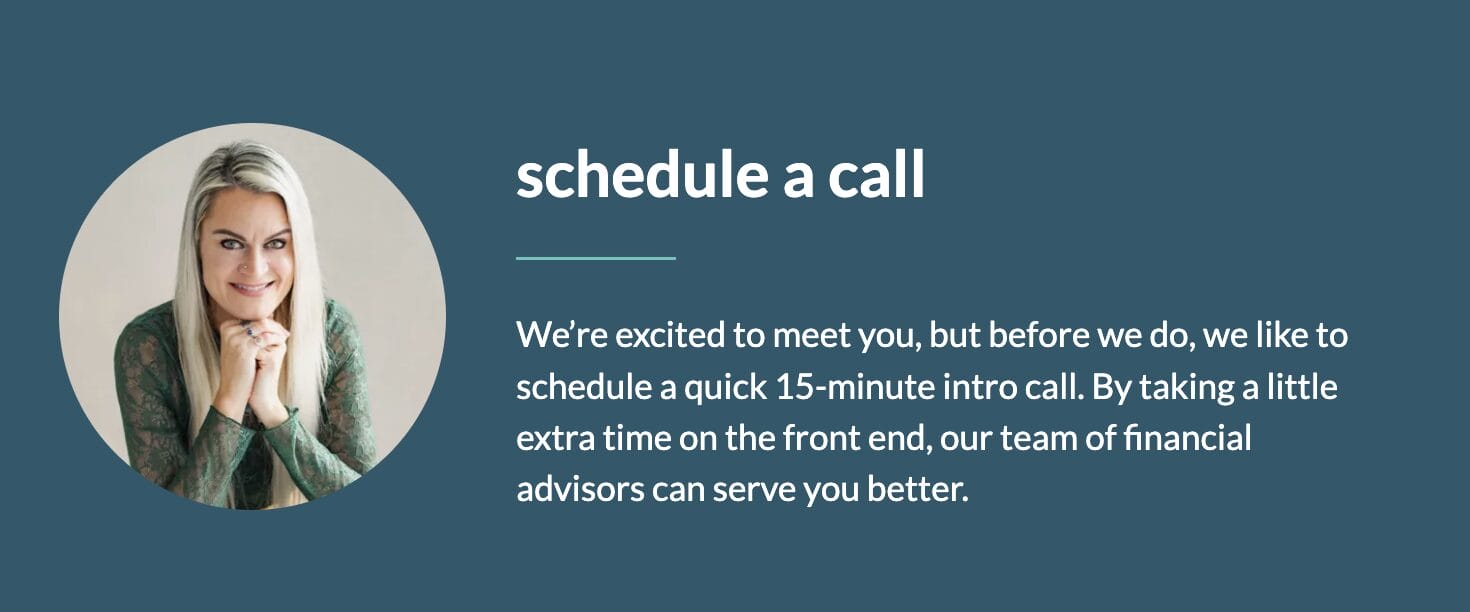
The Money PIG podcast is hosted by Reid Trego. Goodwin Investment Advisory is a Registered Investment Advisory firm regulated by the Securities and Exchange Commission in accordance and compliance with securities laws and regulations. Goodwin Investment Advisory does not render or offer to render personalized investment or tax advice through the Money PIG podcast. The information provided is for informational purposes only and does not constitute financial, tax, investment or legal advice.
For personalized financial guidance, schedule an schedule an intro call with our team at Goodwin Investment Advisory in Canton, GA . Our CFP® professionals can provide advice and help you navigate how to invest your wealth and plan for your retirement. We’d love to help you live out your legacy!
Goodwin Investment Advisory is a Registered Investment Advisory firm regulated by the Securities and Exchange Commission in accordance and compliance with securities laws and regulations. Goodwin Investment Advisory does not render or offer to render personalized investment or tax advice through the Money PIG podcast. The information provided is for informational purposes only and does not constitute financial, tax, investment or legal advice.

